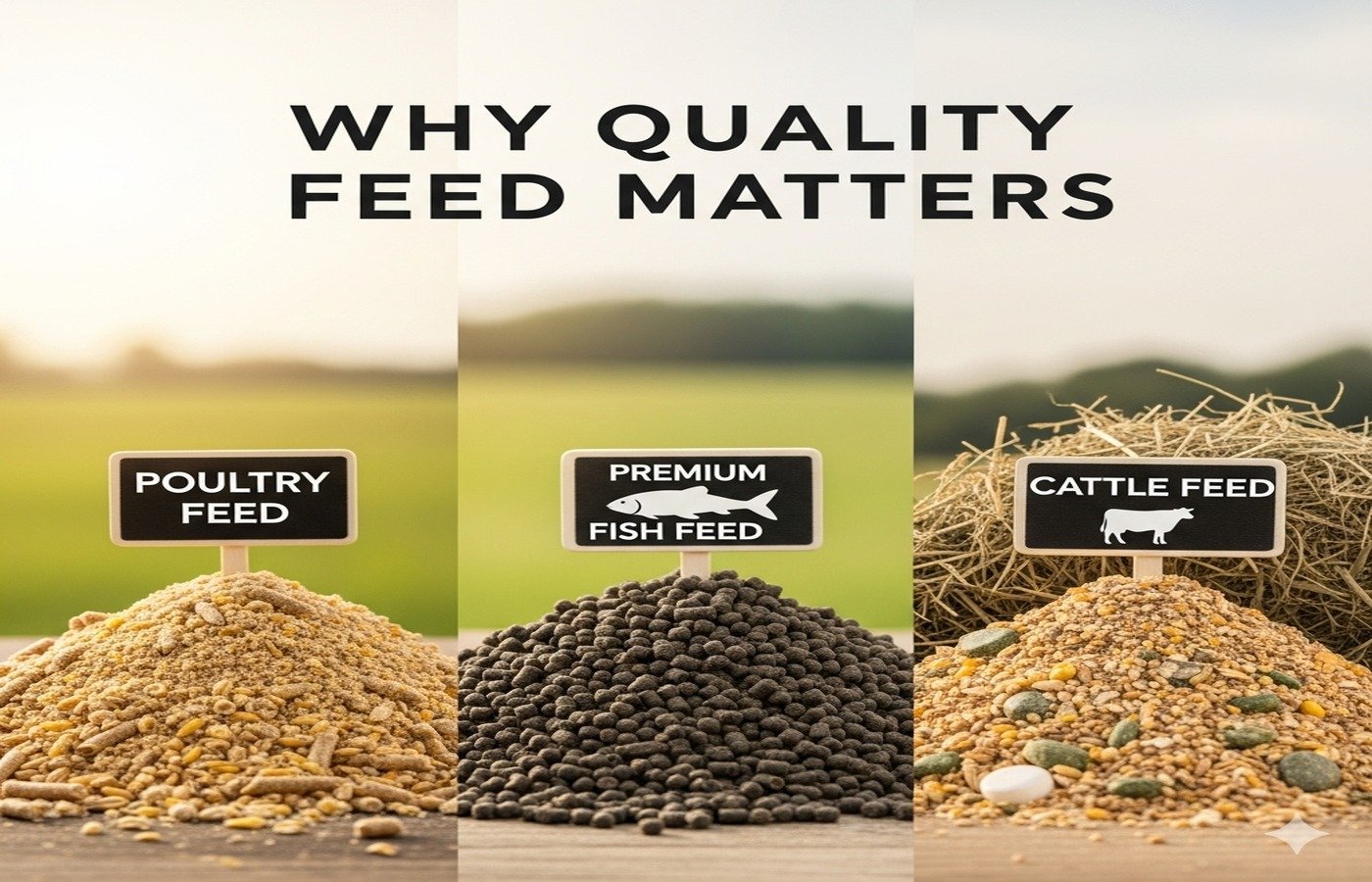Why Quality Feed Matters for Poultry, Fish, and Cattle
Feeding livestock is not just about providing food; it is about ensuring the right nutrition that drives growth, health, and productivity. Whether you are raising poultry, fish, or cattle, the quality of feed plays a vital role in the success of your farm. High-quality feed ensures that animals receive balanced nutrition, leading to stronger immunity, higher yield, and ultimately, more profitable farming.
The Role of Nutrition in Poultry Farming
Poultry, especially chickens, require specific nutrition to grow rapidly, produce quality meat, and lay healthy eggs. A balanced poultry feed includes proteins for muscle growth, calcium for strong eggshells, and vitamins for disease resistance. If the feed is of poor quality, chickens may suffer from stunted growth, weak bones, or reduced egg production. On the other hand, high-quality feed helps maximize feed conversion efficiency, meaning farmers get more growth and output with less wastage.
Why Quality Feed is Crucial for Fish
Fish farming (aquaculture) is highly dependent on feed quality because fish consume nutrients directly from their diet to support rapid growth and reproduction. Superior fish feed contains digestible proteins, essential fatty acids, and vitamins that enhance survival rates, improve immunity, and reduce the chances of disease outbreaks. Poor feed, however, leads to higher mortality rates and slower growth, directly affecting profitability. Farmers who use quality fish feed experience healthier fish, better weight gain, and higher yields.
Importance of Feed in Cattle Rearing
Cattle require a carefully balanced diet for milk production, muscle development, and overall health. Quality cattle feed ensures that cows produce more milk with higher nutritional value and that beef cattle grow with better muscle mass. Essential nutrients such as proteins, carbohydrates, minerals, and vitamins contribute to improved fertility, reduced disease risk, and higher productivity. Low-quality feed, in contrast, can cause nutritional deficiencies, reduce milk output, and increase susceptibility to illnesses.
Economic Impact of Quality Feed
Using high-quality feed is not just a health decision—it is also an economic one. Farmers who invest in quality feed see higher yields, better product quality, and improved market value. Healthy poultry produces more eggs, healthy fish grow faster for market demand, and healthy cattle provide better milk and meat. This means higher profitability for farmers and more sustainable farming practices.
Long-Term Benefits for Farmers
In the long run, quality feed reduces veterinary costs, minimizes livestock mortality, and ensures steady productivity. It also builds a reputation for farmers, as buyers prefer livestock products that are healthy and safe. With rising awareness of food safety, farms that focus on quality nutrition for their animals are more likely to thrive in competitive markets.
Conclusion
Quality feed is the backbone of successful livestock farming. For poultry, it ensures strong growth and egg production; for fish, it guarantees better survival and yield; and for cattle, it boosts milk and meat production. By investing in superior feed, farmers not only secure healthier livestock but also achieve higher profitability and long-term sustainability.


Hello